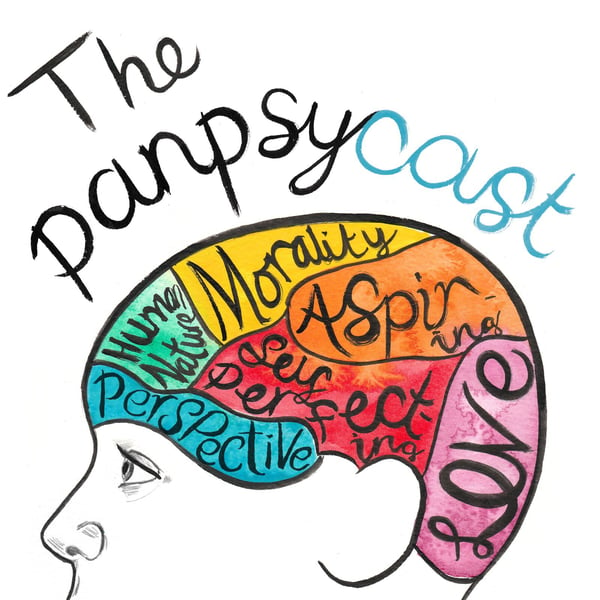Episode 126, ‘Playfulness Versus Epistemic Traps’ with C. Thi Nguyen (Part II - Further Analysis and Discussion)
The Panpsycast Philosophy Podcast
Jack Symes | Andrew Horton, Oliver Marley, and Rose de Castellane
4.8 • 604 Ratings
🗓️ 11 February 2024
⏱️ 39 minutes
🧾️ Download transcript
Summary
There’s great pleasure to be found in make-believe. Instantly shifting our perspectives and belief systems gives rise to new possibilities – possibilities that are unavailable to the serious and sober-minded. Yet, as time passes, so does our desire to play. Adults – and, perhaps more so, philosophers – are instructed to ‘grow up’, to build their lives and views on sensible grounds, and leave their disposition for laughter, disruption, and mischief in the playground. For C. T Nguyen – Professor of Philosophy at the University of Utah – this is a foolish mistake.
C. T Nguyen is one of the most innovative aestheticians of our time. As well as being published across philosophy’s leading journals, Nguyen’s work – which focuses on art, games, and agency – has earned him several notable prizes, including the American Philosophical Association 2021 Award, for his book Games: Agency as Art.
In this episode, we’ll be speaking to Nguyen about intellectual playfulness. For Nguyen, playfulness should be understood as a virtue and not a vice. When we explore philosophical ideas through our usual perspectives, we close ourselves off from a rich set of alternative possibilities, and risk re-directing good-faith inquiry into bad-faith results. Playfulness, however, allows us to escape these traps in our thinking, and open ourselves up to the possibility of creativity.
This episode is produced in partnership with the Aesthetics and Political Epistemology Project at the University of Liverpool, led by Katherine Furman, Robin McKenna, and Vid Simoniti and funded by the British Society of Aesthetics.
Contents
Part I. The Ideal Thinker
Part II. Further Analysis and Discussion
Transcript
Click on a timestamp to play from that location
| 0:00.0 | Pan, pan, pan, pan, pan, pan, pan, pan, pan, pan, pan, pan, pan, pan, pan, pan, pan, |
| 0:07.0 | Scicast! |
| 0:08.0 | Part two, further analyses and discussion. |
| 0:25.4 | In our previous instalment, we spoke about how intellectual playfulness allows us to try out new perspectives, |
| 0:31.9 | explore new ideas, and avoid falling into the traps that lurk within our existing belief systems. |
| 0:38.1 | When I read the paper, T, one of the things that came to mind, and something you go on to suggest |
| 0:43.4 | in the paper yourself, is that playfulness will only encourage us to explore new belief systems |
| 0:47.9 | when they're fun. |
| 0:49.2 | Yet, there are lots of topics which aren't much fun. |
| 0:52.6 | I'm thinking logic, climate change, baseball. What do you |
| 0:56.2 | make of this criticism that the requirement of fun significantly limits the power of playfulness? |
| 1:03.0 | Yeah, I mean, one of the problems is every motivational set for exploring the territory is going to |
| 1:08.8 | limit you in some way. One of the profoundest things that philosophy has to reckon with is the fact that we're limited beings and we have limited |
| 1:14.7 | attention. And each motivational set is going to carve up the space in a different way. So I think |
| 1:19.9 | in some ways, it's good to have a lot of different reasons to explore. And the more you have, |
| 1:25.8 | the more you'll explore the space. So some reasons, you can explore |
| 1:29.6 | for truth-seeking reasons, and that will narrow you to what's plausible. You can explore for fun, |
| 1:34.8 | and that'll narrow you to the ideas that are fun. You can explore empathetically, which means |
| 1:38.8 | you know, exploring things because you feel connected to someone, you feel empathy for them. But that limits you |
| 1:45.5 | to the people you're around that you feel emotionally connected to, which can be conditioned by |
| 1:50.7 | various forms of, say, racial bias or cultural bias. You can explore for what's beautiful, right? |
| 1:56.7 | You can look for theories that are beautiful instead of fun. And that will, like, a lot of the people I know that are drawn to logic and to drawn to really odd theories and logic are drawn to them for their beauty and elegance and not because they're fun. |
... |
Please login to see the full transcript.
Disclaimer: The podcast and artwork embedded on this page are from Jack Symes | Andrew Horton, Oliver Marley, and Rose de Castellane, and are the property of its owner and not affiliated with or endorsed by Tapesearch.
Generated transcripts are the property of Jack Symes | Andrew Horton, Oliver Marley, and Rose de Castellane and are distributed freely under the Fair Use doctrine. Transcripts generated by Tapesearch are not guaranteed to be accurate.
Copyright © Tapesearch 2025.

